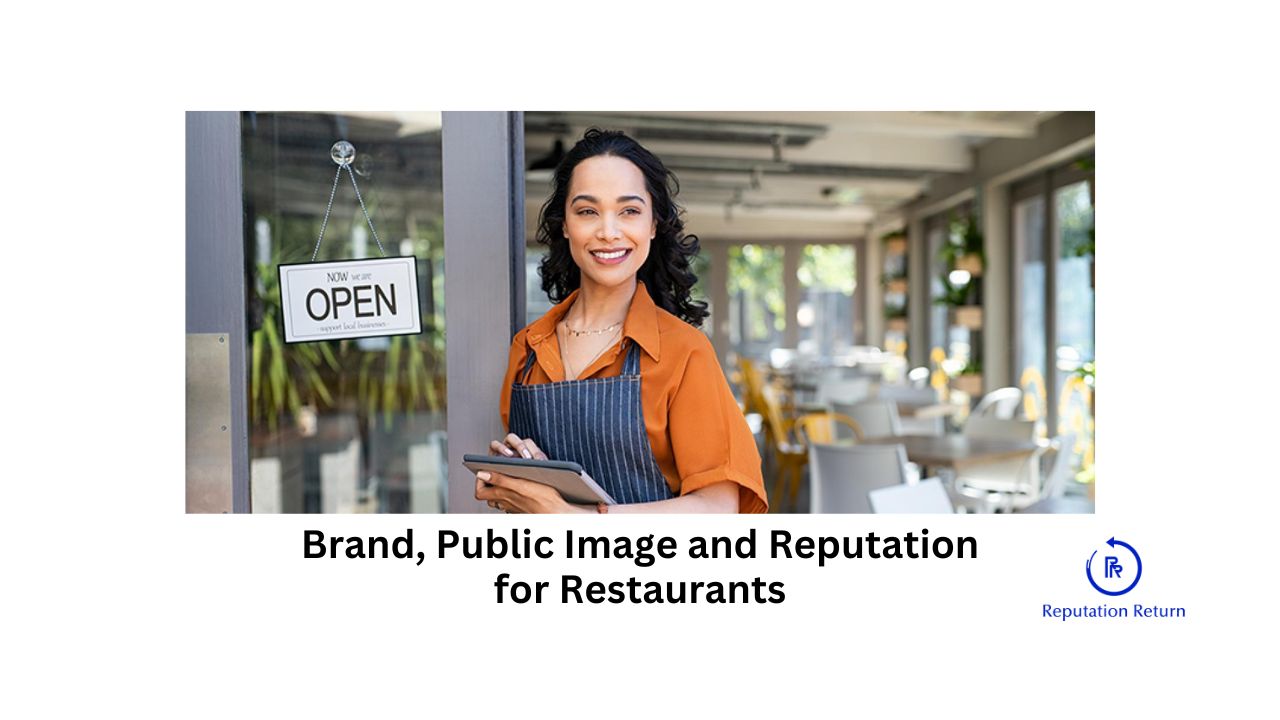In the hyper competitive world of the food and hospitality industry, restaurants must differentiate themselves to thrive. Personal branding, public image, and reputation management play pivotal roles in achieving this goal. Each aspect is integral to a restaurant’s business success, shaping how the establishment is perceived by potential customers and the broader community. Let’s delve into each component and explore their specific importance and application in the restaurant industry.
Personal Branding
Personal branding in the context of a restaurant refers to the unique identity and values the establishment promotes. This includes the restaurant’s ethos, culinary style, ambiance, and the personality projected by the chef or owner. For example, a restaurant branding itself as an eco-friendly eatery with a farm-to-table approach distinguishes itself from competitors by emphasizing sustainability and fresh, locally sourced ingredients.
Specific Example: A restaurant like Alice Waters’ Chez Panisse in Berkeley, California, has successfully built a personal brand around organic and locally sourced food. Waters’ dedication to sustainable agriculture and seasonal menus has not only set her restaurant apart but has also influenced the broader food movement.
Importance:
- Differentiation: Personal branding helps a restaurant stand out in a crowded market. It creates a unique selling proposition that attracts a specific target audience.
- Customer Loyalty: A strong personal brand fosters customer loyalty as patrons align their values with those of the restaurant.
- Media Attention: Unique personal brands often attract media coverage, further enhancing visibility and reputation.
Public Image
Public image refers to the collective perception of the restaurant by the public, shaped by marketing efforts, customer experiences, and media representations. It encompasses everything from the restaurant’s website and social media presence to the design and decor of the physical space.
Specific Example: Danny Meyer’s Union Square Cafe in New York City maintains a polished public image through impeccable customer service, elegant yet welcoming decor, and active engagement on social media platforms. Their Instagram feed features high-quality images of their dishes, behind-the-scenes shots of their kitchen, and customer testimonials, all contributing to a positive public image.
Importance:
- Visibility: A strong public image ensures that the restaurant is easily recognizable and memorable to potential customers.
- Trust: Consistency in public image builds trust with customers, making them more likely to choose the restaurant over competitors.
- Brand Ambassadors: Positive public image turns satisfied customers into brand ambassadors who promote the restaurant through word-of-mouth and social media.
Reputation Management
Restaurant reputation management involves monitoring and addressing reviews, feedback, and online mentions to maintain a positive image. It includes responding to both positive and negative reviews, managing public relations crises, and ensuring that any negative information is mitigated swiftly and effectively.
Specific Example: The team at Shake Shack, a well-known fast-casual chain, is adept at reputation management. They regularly monitor reviews on platforms like Yelp and Google, respond promptly to customer feedback, and actively address any issues that arise. When negative reviews surface, they offer sincere apologies and solutions, demonstrating a commitment to customer satisfaction.
Importance:
- Customer Retention: Effective reputation management helps retain customers by addressing their concerns and showing that their opinions matter.
- Crisis Mitigation: Quick and thoughtful responses to negative reviews or incidents can prevent potential PR crises from escalating.
- Improved Ratings: Actively managing and responding to reviews can improve overall ratings on review sites, which significantly influence potential customers’ decisions.
Integration of Strategies
Combining personal branding, public image, and reputation management creates a robust framework for success in the restaurant industry. For instance, a restaurant could:
- Develop a Unique Personal Brand: Highlight the chef’s background, the restaurant’s commitment to sustainable practices, and the unique dining experience offered.
- Cultivate a Positive Public Image: Use professional photography for social media, maintain an engaging website, and design an inviting physical space.
- Implement Reputation Management Practices: Regularly monitor online reviews, respond to customer feedback, and handle any negative press promptly and professionally.
In the restaurant industry, the synergy of personal branding, public image, and reputation management is crucial for business success. By focusing on these elements, restaurants can attract and retain customers, differentiate themselves from competitors, and build a loyal customer base. As the food and hospitality industry continues to evolve, these strategies will remain essential for any restaurant aiming to thrive in a competitive market.
Call or email to ask us questions about your restaurant’s brand, image and reputation management >>>

